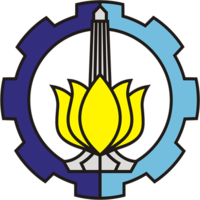Teachers’ Attitude towards Online Learning during Covid-19 Pandemic in Indonesia
Abstract
Abstract
The Covid-19 pandemic has caused nearly all education services of any level to shift to a new way of teaching and learning activities, namely e-learning. Despite its immense potential for delivering and managing courses, the implementation of e-learning requires serious preparation in terms of infrastructure, knowledge, and mentality of the users. This article aims to describe the teachers’ attitude towards online learning during Covid-19 pandemic in Indonesia. There were 71 teachers with different demographic backgrounds from different state and private education levels in several parts of Indonesia voluntarily participating in the self-administered survey using online google form. Data were quantitatively calculated using SPSS-23 and presented in the form of charts. The results showed that 64.8% of the institution the teachers worked provided online facilities, but 73.2% of the respondent still used their own additional media. 52.1% of the respondent did not feel have problems with online learning, but 23.9% were happy teaching in online mode. Moreover, 22.5% of respondents agreed and 16.9% strongly agreed that online teaching must be implemented in addition to conventional mode after the Covid-19 pandemic is over.Keywords
Full Text:
PDFReferences
Azzahra, N. F. (2020). Addressing Distance Learning Barriers in Indonesia Amid the Covid-19 Pandemic. Policy Brief, 2, 1–8. https://doi.org/10.6092/unibo/amsacta/6247
Azzizah, Y. (2015). Socio-Economic Factors on Indonesia Education Disparity. International Education Studies, 8(12), 218. https://doi.org/10.5539/ies.v8n12p218
De Giusti, A. (2020). Policy Brief: Education during COVID-19 and beyond. Revista Iberoamericana de Tecnología En Educación y Educación En Tecnología, 26, e12. https://doi.org/10.24215/18509959.26.e12
Ertmer, P. A., & Ottenbreit-Leftwich, A. (2013). Removing obstacles to the pedagogical changes required by Jonassen’s vision of authentic technology-enabled learning. Computers and Education, 64(May), 175–182. https://doi.org/10.1016/j.compedu.2012.10.008
Heitink, M., Voogt, J., Fisser, P., Verplanken, L., & van Braak, J. (2017). Eliciting teachers’ technological pedagogical knowledge. Australasian Journal of Educational Technology, 33(3), 96–109. https://doi.org/10.14742/ajet.3505
Hung, M. L. (2016). Teacher readiness for online learning: Scale development and teacher perceptions. Computers and Education, 94, 120–133. https://doi.org/10.1016/j.compedu.2015.11.012
Hwee, J., Koh, L., Chai, C. S., & Natarajan, U. (2018). Developing Indonesia teachers’ technological pedagogical content knowledge for 21 st century learning (TPACK-21CL) through a multi-prong approach. In Journal of International Education and Business (Vol. 3, Issue 1). URLS%0Acrie.org.nz/journal/vol3no1/Koh et al TPACK_indonesia.pdf
Muttaqin, T. (2018). Determinants of Unequal Access to and Quality of Education in Indonesia. Jurnal Perencanaan Pembangunan: The Indonesian Journal of Development Planning, 2(1). https://doi.org/10.36574/jpp.v2i1.27
UNESCO-IESALC. (2020). COVID-19 and higher education: Today and tomorrow. UNESCO International Institute for Higher Education in Latin America and the Caribbean (IESALC), 1–46. https://bit.ly/34TOSvu
Widodo, A., & Riandi. (2013). Dual-mode teacher professional development: challenges and re-visioning future TPD in Indonesia. Teacher Development, 17(3), 380–392. https://doi.org/10.1080/13664530.2013.813757
Yusuf, A. E. (2016). The Implementation of Ict Based Education in Elementary Teacher Education (PGSD) in Indonesia. Humaniora, 7(1), 8. https://doi.org/10.21512/humaniora.v7i1.3391
DOI: http://dx.doi.org/10.12962%2Fj29649714.v1i1.8208
Refbacks
- There are currently no refbacks.
